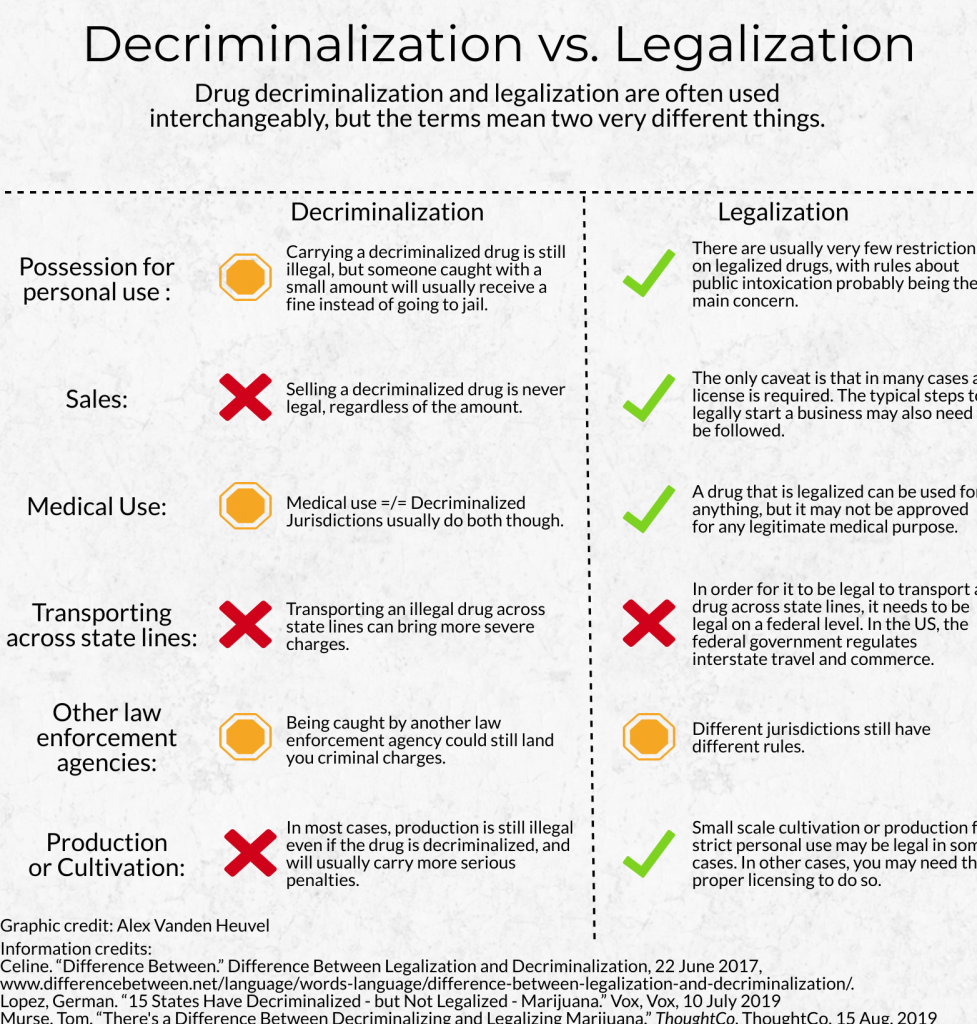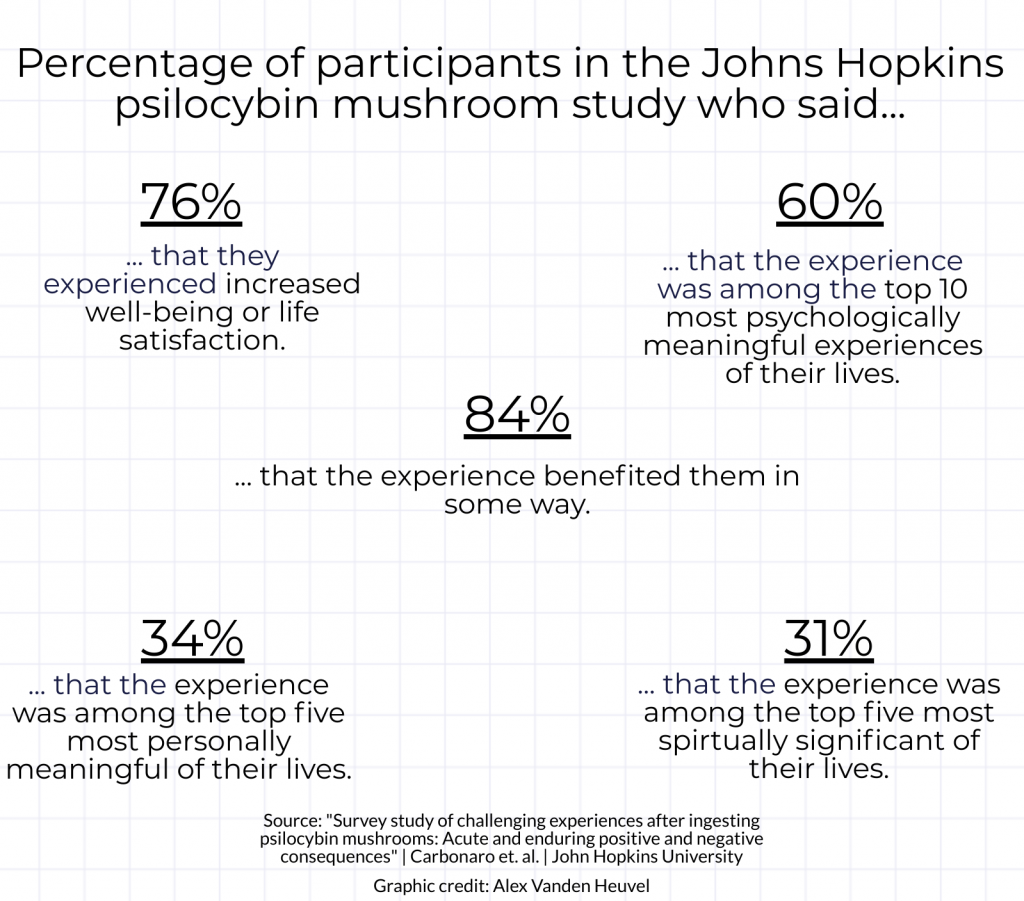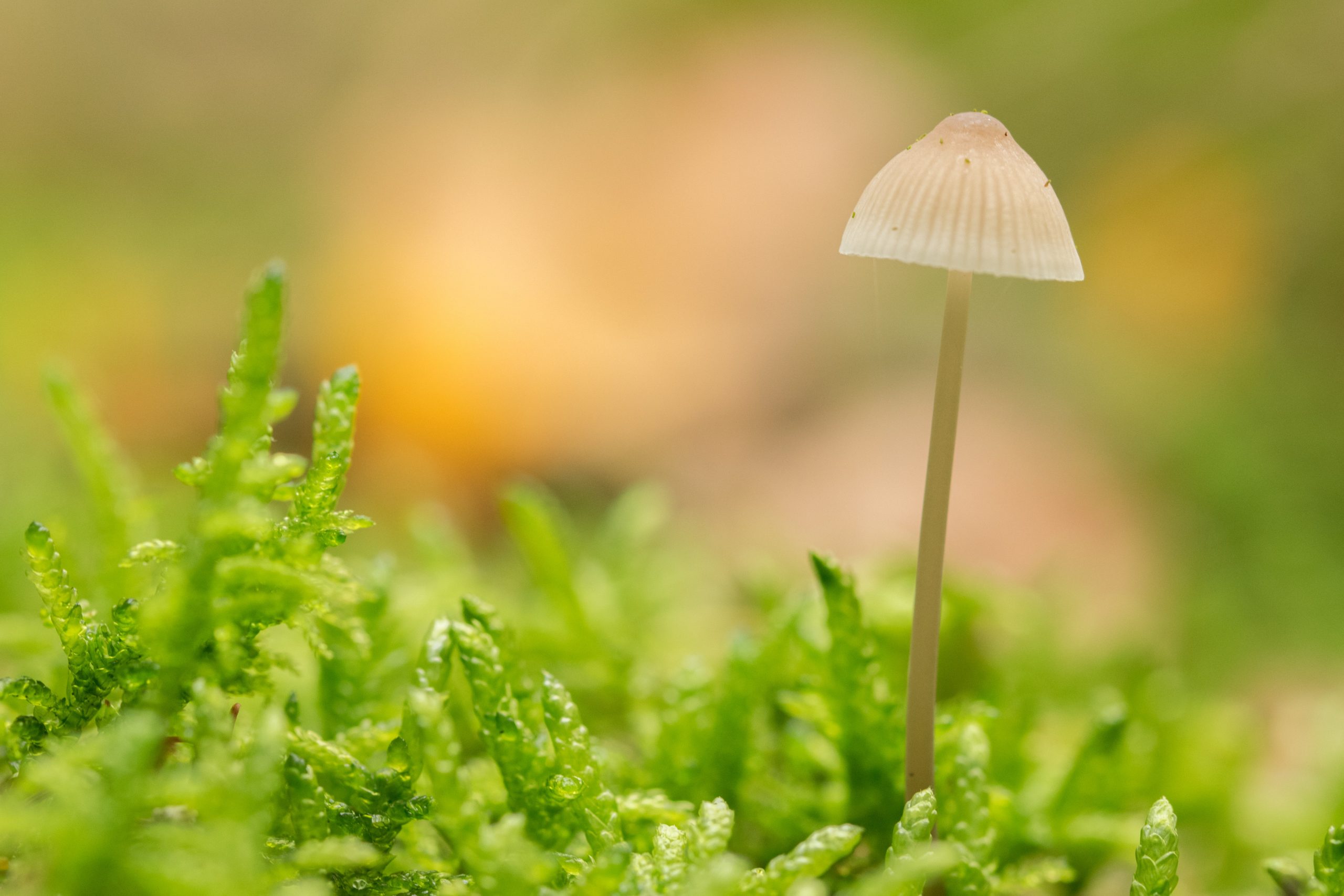While marijuana is being decriminalized or legalized in states and municipalities across America, there is a new push to decriminalize psilocybin.
Psilocybin is a naturally occurring hallucinogenic substance famously found in more than 200 kinds of mushrooms that are collectively referred to as “magic mushrooms” or “psychedelic mushrooms.”
Zane Bader is a 2018 graduate of the University of Georgia who was the president of the Psychedelic Club at UGA during his time as a student, and he was also involved with Students for Sensible Drug Policy at UGA. Students for Sensible Drug Policy is a national organization that advocates for the end of the criminalization of drug use and drug policy reform.
“[Magic mushroom] is a blanket term for mushrooms that have psychedelic or hallucinogenic properties, of which there are actually multiple different species that fall under that umbrella,” Bader said. “Psilocybin is the most prevalent chemical compound that is known that produces those effects, but it’s not psilocybin itself that causes the psychedelic effects. When you ingest psilocybin, your body breaks it down into another chemical called psilocin and that is what actually produces all those psychedelic effects in the body.”
Why It’s Newsworthy: There are movements to decriminalize psilocybin mushrooms (a.k.a. “magic mushrooms”) developing in several places in the United States. Understanding what psilocybin is and what its effects are will help Georgians determine how they feel about this growing trend that may hit home at some point in the future.
Initiatives to Decriminalize Psilocybin
Over the past six months, the cities of Denver and Oakland, California both decriminalized psilocybin mushrooms. The Denver initiative, which was passed by a referendum vote, placed psilocybin mushrooms on the lowest level of priorities for law enforcement in Denver and also reduced the criminal penalties for the personal use and cultivation of the mushrooms. The Oakland law, which was passed unanimously by the city council, decriminalized psychoactive plants more broadly as to also include things such as peyote, mescaline or ayahuasca.
The city councils of Chicago and Santa Cruz, California are both considering resolutions that would support prioritizing psilocybin mushrooms to the lowest priority for local law enforcement agencies, but neither of the resolutions would be legally binding. It’s also important to remember that decriminalization is not the same thing as legalization.

“There is a growing mass of research showing that not only do these [mushrooms] have a ton of potential benefits; but also that the risks associated with them, in terms of risks to the user and risk to society, are extremely low,” Bader said. “I don’t think that anyone should be able to walk into CVS and just buy some psychedelics and take them, but I definitely don’t think anyone should be facing being locked in a cage for possessing something that literally grows in our state. You can walk through a lot of parts of rural Georgia and find them in a lot of places.”
There are currently two states where activists are pushing to change how psilocybin mushrooms are regulated.
Groups in Oregon are working to collect signatures for a 2020 ballot measure called the Psilocybin Service Initiative, which would allow for the limited therapeutic use of “guided psilocybin services” and also reduce the penalty for personal possession. A group called Decriminalize California is working on the development of two different ballot initiatives in the state.
Zach Topley, the outreach director for Decriminalize California, said that one measure simply seeks to reduce the criminal penalties for possession and cultivation for personal use. The second measure builds upon the first measure and would allow for licensed sales as well as give amnesty to anyone in the California criminal justice system that has been convicted of psilocybin mushroom-related offenses.
Topley said that ultimately if both measures clear the barriers to becoming a referendum, the group will pick whichever of the two has more support to put on the ballot.
“If we’re successful in California, it will set an example to other states and countries throughout the world. People will see that the result of this is that California is no less safe than it was before, and people with mental health conditions will be better off,” Topley said. “I think you could potentially see states taking similar actions, as well as the federal government. It looks like [the federal government] will be reviewing its scheduling of cannabis [under the Controlled Substances Act] at some point in the near future, and hopefully, they will reschedule psilocybin mushrooms.”
Medical Effects of Psilocybin
Scientists have researched psilocybin since the 1950s and have found the potential for medical value. There is research that indicates that psilocybin can help people who suffer from treatment-resistant depression, end-stage cancer anxiety, and can also help people overcome addiction to tobacco and alcohol. Psilocybin has a low-addiction potential, and there is no known lethal dose because it would be extremely large.
The main dangers associated with psilocybin mushrooms are also psychological. While there is no way to lethally overdose on mushrooms from a physical standpoint, it is still possible to overdose on mushrooms and suffer consequences to one’s mental health. A recent survey shows that 8 percent of people who experienced a “bad trip” sought out psychiatric help afterward. There are concerns that psilocybin could cause psychotic breaks and extreme reckless behavior for individuals diagnosed with certain mental illnesses like schizophrenia, and can make conditions like bipolar disorder, panic disorders, and anxiety disorders worse.
It is worth noting that the same study that found that 8 percent of people sought psychiatric help after a “bad trip” also had a high number of participants report benefits.

Looking Toward the Future
Despite Denver’s overwhelming support for cannabis legalization, the initiative to decriminalize psilocybin mushrooms passed just 50.6% to 49.4%. Advocates of psilocybin mushrooms still have a lot of work to do if they want to see progress outside of progressive cities in the Western United States.
“I would say stigma plays a huge role, but also a lack of education, or fear that has really been driven through multiple generations at this point. Cannabis is the most widely used drug in the world, aside from maybe alcohol and tobacco. It’s something that a lot of people’s parents or grandparents have tried. It’s just generally not as frowned upon,” Bader said. “But once you start talking about psychedelics and things that really kind of alter your state of consciousness in a much more profound way, it is something that’s scary for a lot of people.”
Given that cannabis has not been legalized in Georgia or decriminalized in Athens, it is likely that any effort to decriminalize magic mushrooms in Athens will take place in the distant future. But given the emerging trend, perhaps it will be a commonplace discussion in a few years.
Alex Vanden Heuvel is a senior majoring in journalism in the Grady College of Journalism & Mass Communication at the University of Georgia.









Show Comments (5)
polkadot chocolate
I must say the medical benefits associated with polka dot magic chocolate are remarkable
Uniqueshrooms
Unqiueshrooms is a company that focuses on the needs of the planet, developing food and systems for filtering water, creating prototypes for novel antibiotic discovery, isolating target specific myco-pesticides to replace chemical pesticides for problematic insects, and many other projects that use fungi to harmonize our coexistence with nature.
Ryan
Really am ecstatic that in Canada we have seen a change. Patient’s can now receive magic mushrooms legally in Canada. While still a long ways to go to be similar to cannabis, the tides are turning.
Grant Sullivan
I have ran a dispensary for 15 years in Canada. We have sold both cannabis and magic mushrooms. I often questioned some of the medical use with cannabis with certain patient’s over the years. Undoubtedly, some were using for pain control. Other’s for appetite while on chemo. But I definitely new that was not the whole picture.
We introduced psilocybin after hearing some of the work maps.org was doing. We talked to our lawyers, and decided to open up the option in Vancouver. The results were staggering. The benefits for mental health, in particular with depression and the feedback was amazing. You can also see it in the orders. People would order and come back. But not like cannabis (weekly). Maybe every 3-6 months.